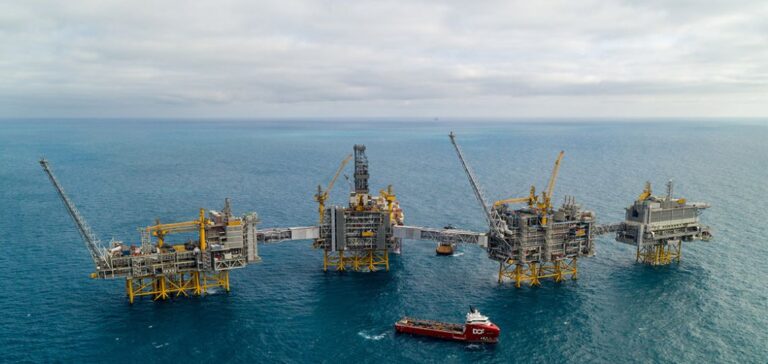Norway’s Aker BP has announced several projects to increase production of medium gravity Grane crude in Norway. Thanks to strong production from the Johan Sverdrup field and assets purchased from Lundin Energy, Aker BP more than doubled its production in the fourth quarter of last year to 432,000 barrels per day of oil equivalent. Aker BP is forecasting average production of 430,000 to 460,000 b/d in 2023. Despite a power outage at the Sverdrup field in January, Aker BP’s CEO said he was “extremely satisfied” with the way phase 2 was executed by Equinor. As for the fields feeding the Grane blend, Aker BP described several developments that will be delivered via the Ivar Aasen and Edvard Grieg platforms, the latter inherited from Lundin.
Grane Blend Projects
As part of the Utsira High project, Aker BP will connect the Symra field to the Ivar Aasen platform and the Solveig Phase 2 and Troldhaugen accumulations to the Edvard Grieg platform, both of which feed Grane. The fields will be commissioned at various times in 2026-27. The Yggdrasil project, targeting 650 million boe, will also feed the Grane blend. Aker BP plans to drill 55 wells, including 38 subsea and 17 platform-based wells, with a start-up date of 2027. Yggdrasil has entered the execution phase and Aker BP has entered into Yggdrasil-related agreements worth approximately NOK 50 billion ($4.9 billion) with alliance partners and suppliers.
Cost pressures
Aker BP was instrumental in the postponement of Equinor’s Wisting project in November. The company said work continues on a viable development of Wisting, including a possible reconfiguration of the project and additional exploration drilling to improve its viability. Hersvik, CEO of Aker BP, said inflationary pressures had eased on international inputs such as steel, but this was offset by continued cost pressures on Norwegian-specific services and equipment. Platts valued Grane at a 35 cents/bbl discount to February 9-dated Brent, according to S&P Global Commodity Insights data.





















